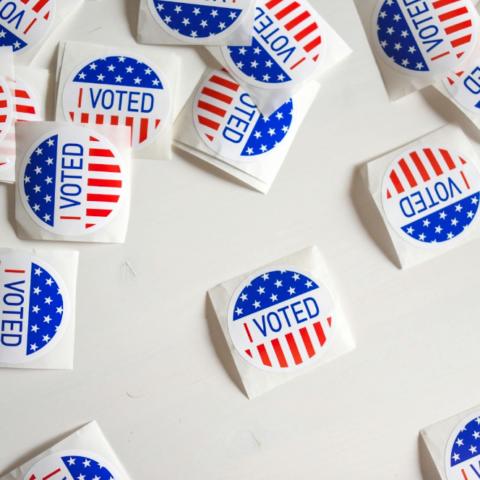Cover Photo Source: Pete Pryylski/The Red & Black
By Seamus Murrock
Accompanying TEDxUGA’s impressive shift from Tate Grand Hall in 2016 to the larger, more grandiose Classic Center Theatre this past Friday was a subtler shift in tone from years’ past. Following a 2016 election cycle that was described as one of the most divisive in American history by everyone from the Boston Globe to stockinvestor.com, organizers from the University’s New Media Institute, Alumni Association, and several other organizations chose a more unifying and exploratory theme for this year’s showcase. Spectrum, the 2017 installment of the annual TEDxUGA event, was designed to “challenge us, change us, and help us to see the world differently than before.”
From mid- to late-afternoon, guests received three doses of “ideas worth spreading” across a broad range of topics and mediums, including the dangers of non-native species to our ecosystems, the power of a genuine compliment, and the importance of prudent financial planning in strengthening families and communities across the country. While the event’s diverse range of speakers and performers included such lighthearted acts as two dance teams, a stand-up comedian, and even UGA’s Homecoming King, some presenters chose to bring a metaphorical elephant into the room with them by choosing topics that veered into the jurisdiction of our toxic political climate.
Dr. Leah Carmichael, a professor in the School of Public and International Affairs, opened the event with a sobering image of worldwide food insecurity, particularly in the Middle East. In her talk, she described how violations of international law go largely ignored by the policy community, but are felt intensely by the most vulnerable of those around us. While food insecurity in the United States has been diminished by local organizations and economic empowerment, children in Syria and other war-torn countries are less fortunate.
As the new administration in the U.S. seeks to limit its outreach around the world and cut back on foreign aid and instead focus on internal issues, Dr. Carmichael stressed the importance of continuing to reach out to those around the world who rely on our support. “Call your congressmen, donate, and, most importantly, just be aware of other’s issues around the world,” she said. “International is not just general anymore. We all have the same problems and can no longer afford to overlook others just because they may be far from us.”
Dr. Valerie Babb, a Franklin College Professor of English and the director of the Institute for African-American Studies, chose to lecture the audience on the topic of narratives of fear in the U.S. and how these fallacies can whittle away at our American ideals. Since the early days of our nation, she explained, the majority groups have always sought to instill an “us vs. them” mantra into our collective psyche in order to retain power. “The ‘them’ changes over time based on the needs of society,” she said. “From the Chinese to Irish to Blacks, it’s just a means to justify unfair treatment of certain minority groups.” Although significant progress has been made, particularly throughout the last century, the nation still has a long way to go before we can thwart these narratives once and for all.
When asked if she feels like the country is moving in the right direction regarding bigotry and false narratives after the show, Dr. Babb seemed less optimistic than she did on stage just moments earlier. “During the last administration, I believed we were taking the right steps, even if they were just small steps, forward. Now a new contingency comes in and takes us eight steps backward,” she said. Indeed, the unsuccessful travel ban of citizens from eight Muslim-majority countries to the U.S., as well as the appointment of Stephen K. Bannon, whose website Breitbart News often peddles anti-Muslim and anti-Semitic rhetoric, to White House Chief Strategist, has done little to diminish the narratives of fear exploited by many cable news outlets. Now, immigrants around the country, from Arkansas to New York to Los Angeles, report feeling fear and abandonment in a country many risked their lives to come to.
The aforementioned elephant in the room, however, was never larger than when Dr. W. Keith Campbell, a professor in Franklin College’s Department of Psychology, took the stage to explore the complicated intricacies of one of psychology’s most common diagnoses: narcissistic personality disorder. While he spoke abstractly yet passionately about narcissistic personality disorder and the feelings of grandiosity, jealousy, and arrogance that characterize its victims, many in the audience couldn’t help but think of the new 45th President, the one with the self-proclaimed “very good brain” whose “I.Q. is one of the highest.” (Sorry losers and haters!) Although he has been cited extensively by outlets like The Atlantic for his critiques of President Trump and his narcissistic tendencies, Dr. Campbell used his platform at TEDxUGA for primarily educational purposes.
Since the end of the vitriolic 2016 election cycle, many Americans have become more acutely aware of our political climate, and this new civic enthusiasm has manifested itself in a variety of ways. At Spectrum, this year’s annual TEDxUGA showcase, many presenters harnessed this engagement, and did their best to share their ideas worth spreading.


